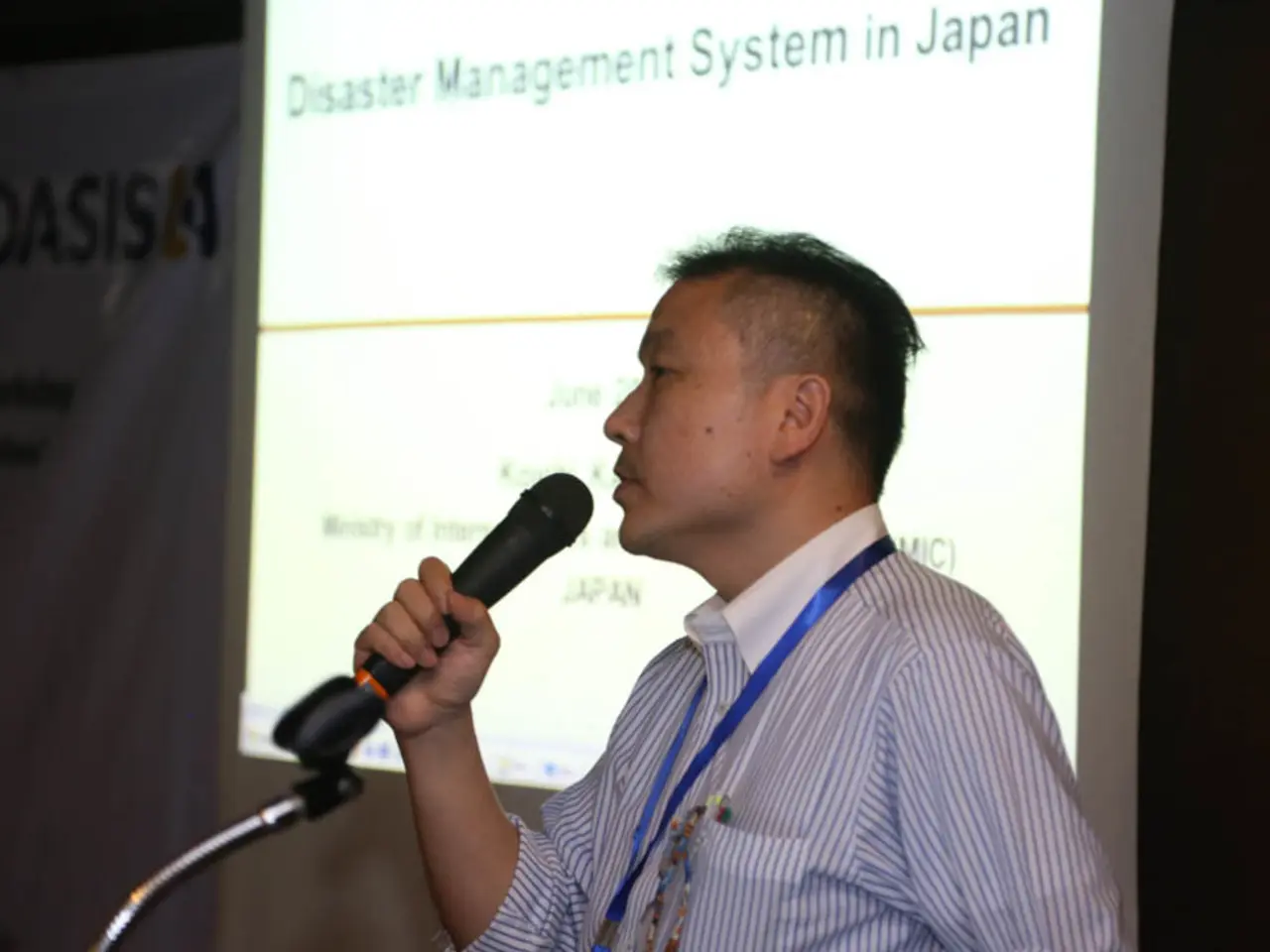Election Aftermath: Apprehension Mounts Regarding Japan's Prime Minister Ishiba's Future Role - Post-Election Unrest: Questions Swirl over Prime Minister Ishiba's Tenure in Japan
Japan's Prime Minister Shinzo Ishiba is facing growing pressure to resign following the defeat of his ruling LDP-Komeito coalition in the July 20, 2025, upper house election. The coalition, which has governed Japan almost continuously since 1955, has been weakened by public dissatisfaction with the economy and rising prices, particularly of essential items like rice.
The LDP and Komeito won only 47 seats in the House of Councillors, their worst result in 15 years. This is a significant setback, as the coalition needed to win at least 50 seats to defend their majority, but fell short. As a result, the government must now rely on opposition support to pass legislation, increasing political instability and uncertainty about Ishiba's leadership going forward.
The economic dissatisfaction is evident in the contrasting support for the government's and opposition's proposals. While measures proposed by the government, like a ¥20,000 cash handout, received only 17.9% voter support, opposition proposals like a consumption tax cut received 76.7% support.
The defeat comes after the coalition government lost its majority in the House of Representatives in a snap election last October. Since then, the government has struggled to push through Ishiba's agenda, with the right-wing anti-immigration party Sanseito, previously with only two seats, winning 14 seats.
Despite the setbacks, Ishiba has stated that he will remain in office, citing his responsibility to prevent political stalemate. However, media speculation suggests that he may step down soon, with the "Yomiuri" reporting that he may announce his resignation after being informed about the agreement with the US. Ishiba has denied these reports, stating that there should be no internal party strife and that all are aware of the serious situation.
The future tariff on imports of Japanese goods into the US, according to US President Donald Trump, will be 15 percent. Ishiba has stated that he wants his trade representative, Ryosei Akazawa, to return from Washington and inform him about the agreement with the US before deciding when to announce his resignation.
The defeat in the election has left the government without a majority in both houses of the Japanese parliament, adding to the uncertainty about Ishiba's leadership and the future direction of Japan's government. The rising living costs, particularly the doubling of rice prices, have contributed to the public discontent, and it remains to be seen how the government will address these issues moving forward.
- Shigeru Ishiba faces growing pressure to resign, due to the defeat of his coalition government in the July 20, 2025, election.
- The coalition, comprising the LDP and Komeito, has governed Japan for over six decades.
- The government won only 47 seats in the House of Councillors, their worst result in 15 years.
- The coalition needed 50 seats to defend their majority but fell short, increasing political instability.
- Public dissatisfaction with the economy and rising prices, particularly of rice, has weakened the coalition.
- The government's proposal for a ¥20,000 cash handout received only 17.9% voter support.
- Opposition proposals for a consumption tax cut received 76.7% support, highlighting economic dissatisfaction.
- The government lost its majority in the House of Representatives in a snap election last October.
- The right-wing anti-immigration party Sanseito, previously with only two seats, won 14 seats after the snap election.
- Ishiba has stated that he will remain in office, citing his responsibility to prevent political stalemate.
- Media speculation suggests that Ishiba may step down soon, with the "Yomiuri" reporting that he may announce his resignation.
- Ishiba has denied these reports, stating that there should be no internal party strife.
- US President Donald Trump has stated that the future tariff on imports of Japanese goods will be 15 percent.
- Ishiba has stated that he wants his trade representative to return from Washington to inform him about the agreement with the US.
- The government is now reliant on opposition support to pass legislation.
- This has left the government without a majority in both houses of the Japanese parliament, adding to the uncertainty.
- The rising living costs, particularly the doubling of rice prices, have contributed to the public discontent.
- The future of the Japanese government remains uncertain, as does Ishiba's leadership.
- Ishiba will need to address economic issues moving forward, or risk further losses.
- The defeat comes around the same time as record-breaking wins at Las Vegas casinos by players.
- One player won big at blackjack, another at slots, and another at poker.
- It seems that despite political uncertainty, some find solace in casino games like slots and poker.
- Shigeru Ishiba's troubles mimic the struggle of some casino players - chasing big wins despite the odds.
- Casino trends show a growing interest in personalities like Shigeru Ishiba and their policy decisions.
- The rise of the right-wing anti-immigration party Sanseito mirrors the rise of political parties in the USA and Europe.
- Just as casino players should be aware of the risks of gambling, so should voters be aware of the risks of politicians like Ishiba.
- While Ishiba is faced with political challenges, there are lessons to be learned from America's gambling culture.
- The world watches as Japan navigates its political challenges, just as it does as American sports leagues vie for champions in various sports.




